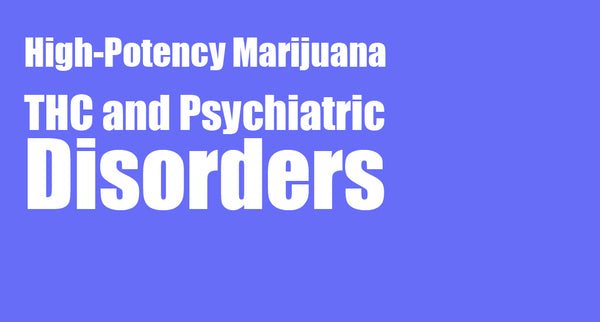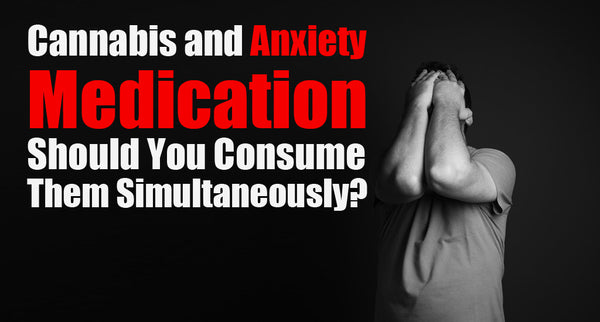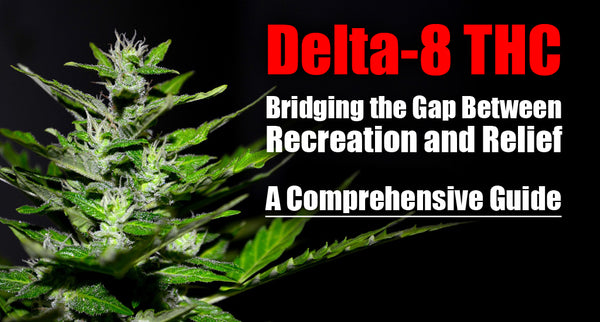
The Potential of Cannabis for Managing ADHD: From Symptoms to Solutions
ADHD, a condition impacting millions in the US, has led to over 6 million children being diagnosed with this chronic disorder. The evident statistics underscore the pressing need for a more dependable solution. And here's where cannabis comes into play – yes, you read that correctly.
But does cannabis truly enhance focus for ADHD patients? The response is affirmative. However, before delving further, let's first establish a comprehensive understanding of the subject.
What is ADHD?
Attention Deficit Hyperactivity Disorder (ADHD) primarily impacts children and adolescents, but its effects can extend into adulthood. This condition profoundly influences crucial cognitive functions such as focus, memory, organizational abilities, and self-control.
Individuals with ADHD often exhibit hyperactivity, impulsiveness, and a propensity for easy distraction. As they transition to adulthood, the challenges associated with ADHD can continue to influence their daily lives, including academic and professional pursuits, relationships, and overall well-being.
A closer look at the symptoms
The symptoms of ADHD include:
- Hyperactivity
- Anxiety
- Depression
- Talking excessively
- Mood swings
- Low self-esteem
- Anger issues
- Boredom
What are the available treatment options for ADHD?
The primary treatment modalities encompass:
-
Stimulants: These function by enhancing brain activity through the release of dopamine, a pivotal neurotransmitter for attention and thinking. These medications heighten concentration and effectively mitigate the fatigue linked to ADHD. Among stimulants are amphetamines, methamphetamine, and methylphenidate.
-
Non-stimulants: Differing in mechanism from stimulants, non-stimulants have a gradual impact on the brain. They enhance attention, focus, and impulsivity in individuals with ADHD. This category includes atomoxetine, clonidine, and guanfacine.
-
Antidepressants: While not FDA-approved for ADHD, antidepressants are sometimes utilized due to their capacity to mirror stimulant effects, prompting dopamine and norepinephrine release.
Considering the potential drawbacks of these options, the exploration of medical marijuana for ADHD arises. This is motivated by concerns over the adverse effects associated with traditional medications, which could potentially disrupt normal bodily functions.
Exploring the Potential of Medical Marijuana for ADHD
It's crucial to recognize the profound therapeutic potential of medical marijuana, as its diverse effects offer considerable advantages for managing various medical conditions. While ADHD lacks a definitive cure, cannabis holds promise in alleviating its symptoms and providing much-needed relief.
ADHD individuals often grapple with heightened impulsivity and social challenges. Medical marijuana usage can introduce a sense of equilibrium and tranquility to the body, potentially addressing these issues. Notably, many patients turn to cannabis due to its ability to elevate dopamine levels in the brain, directly influencing cognitive function and inducing relaxation.
The struggle to organize thoughts is a common plight for those with ADHD. Here, cannabis steps in as a potential solution. The active compounds THC and CBD engage with the endocannabinoid system, fostering cognitive balance within the brain. By doing so, cannabis could offer a pathway to improved thought organization for ADHD patients, helping them navigate their daily challenges more effectively. However, further research is necessary to fully understand the extent of cannabis's benefits and potential drawbacks in the context of ADHD treatment.
Related article: THC and CBD, and the Entourage Effect!
The Impact of Cannabis on Focus and Balance: A Closer Look at the Endocannabinoid System and Strain Variability
The Endocannabinoid System (ECS) constitutes a network of receptors, enzymes, and endocannabinoids dispersed throughout the body. Among the primary receptors, CB1 and CB2 stand out. CB1 predominates in the brain and central nervous system, while CB2, less prevalent in the brain, significantly influences receptors.
Upon ingestion or inhalation of cannabis, its active compounds engage with endocannabinoid receptors, triggering the release of mood-enhancing hormones that instill a sense of relaxation.
Cannabis serves as a facilitator of homeostasis, ensuring balanced bodily functions. The key to harnessing cannabis for improved focus lies in appropriate dosing. Its effects are biphasic, manifesting opposite impacts at high and low doses. THC, for instance, enhances brain function at moderate and low levels, but excessive consumption can result in overwhelming intoxication. Seeking professional guidance before cannabis use is recommended.
Moreover, each cannabis strain possesses unique attributes. Genetic composition primarily dictates the effects of a particular strain. Terpene profiles, THC and CBD content collectively shape the experience and benefits that cannabis imparts.
A Comprehensive Exploration of its Role in Alleviating ADHD Symptoms
It's crucial to move beyond mere assumptions and delve into the realm of substantial research that sheds light on the potential efficacy of medical marijuana in mitigating ADHD symptoms. A survey conducted within online forums revealed that nearly 25% of participants held the belief that cannabis could effectively alleviate ADHD symptoms. While these positive perspectives hold merit, they are complemented by ongoing research that delves into the efficiency of medical marijuana in treating ADHD.
A notable study conducted by the Nature journal in 2017 underscored that THC triggers a brief release of dopamine. However, it's essential to note that prolonged use might potentially result in more harm than benefit. This underscores the importance of proper dosing to effectively manage ADHD symptoms.
In 2015, an analysis involving 30 patients (28 males and 2 females) explored the effects of cannabis on the disorder. The study revealed significant improvements in concentration, notable reduction in impulsivity, and even slight enhancements in sleep patterns.
To ensure accurate guidance, seeking assistance from medical marijuana doctors online is a prudent step. This avenue can guarantee the right path towards therapy and the alleviation of ADHD symptoms.
The potential of medical marijuana to enhance focus among ADHD patients primarily hinges on the correct dosage and strain selection. Existing research elements highlight cannabis's potential effectiveness in diminishing ADHD symptoms. With ongoing research efforts, it is anticipated that cannabis's effectiveness will continue to evolve in the foreseeable future.
Cannabis for Treating ADHD: Strategic Tips for Optimal Results
When considering the utilization of cannabis to manage ADHD symptoms, several key pointers can guide your approach for effective outcomes.
-
Strain Selection: Opting for strains with higher THC content is often preferred for treating ADHD. THC levels directly correlate with the psychoactive effects experienced upon consumption. Elevated THC levels can provide a crucial sense of equilibrium and comprehensive body relaxation, contributing to symptom alleviation.
-
Navigating as a Beginner: For newcomers to medical cannabis treatment, strain selection can be a nuanced decision. Choosing a strain that balances THC and CBD levels is prudent. This balanced approach allows novices to acclimate to the effects gradually, making the experience more manageable. Starting with strains that are less potent before gradually moving to stronger ones is a thoughtful progression.
-
Promising Strains: Strains like Green Crack, Sour Diesel, Gorilla Glue, True OG, and Blue Dream are high in THC and offer robust effects. These strains provide the desired impact for managing ADHD symptoms while also being widely accessible at local dispensaries.
-
Diverse Consumption Methods: The versatility of medical marijuana extends to consumption methods beyond smoking. While smoking is conventional, alternatives like tinctures, topicals, vapes, and patches offer varying benefits. CBD oils provide another non-smoking avenue for those seeking relief.
In summary, strategic engagement with medical marijuana for ADHD entails selecting strains with appropriate THC levels, considering balanced THC-CBD strains for newcomers, exploring strains like Green Crack and Blue Dream, and embracing diverse consumption options. The evolving landscape of medical cannabis treatment provides multifaceted avenues to address ADHD symptoms with tailored precision.



